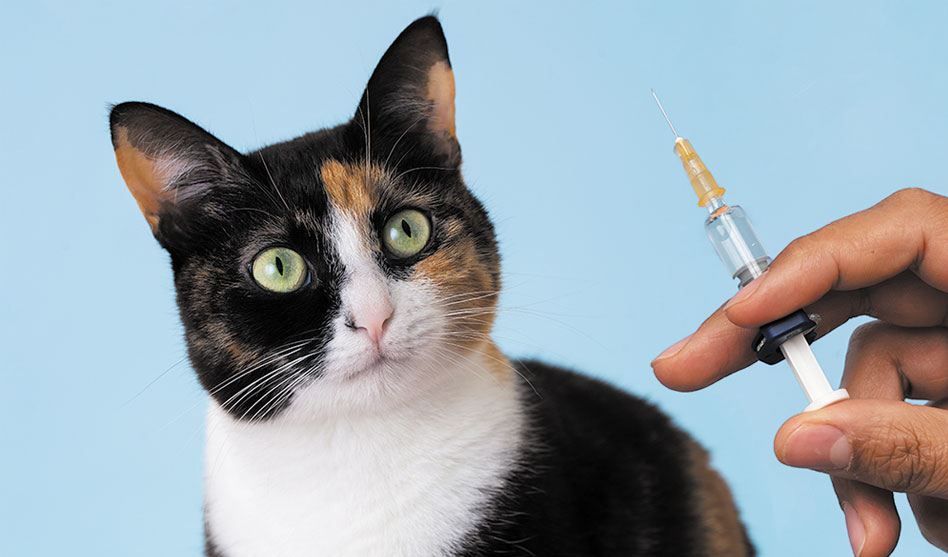 Hello, Dallas Voice readers! As usual, I am thrilled you are here to read this month’s Woof column. Today, we are diving into a topic that is crucial for keeping our furry friends safe: vaccinations for dogs and cats.
Hello, Dallas Voice readers! As usual, I am thrilled you are here to read this month’s Woof column. Today, we are diving into a topic that is crucial for keeping our furry friends safe: vaccinations for dogs and cats.
While every veterinarian may have their own approach, most follow similar guidelines. Personally, I believe in a “less is more” approach, where some vaccines are recommended only if they fit your pet’s lifestyle. As always, these decisions are best made when having a conversation with your veterinarian.
Let’s start with the parvo vaccine for dogs, which is a lifesaver against the dangerous parvovirus. This lethal virus, spread through contact with infected stool, affects a dog’s stomach and intestines, especially and most commonly in puppies, even when they are only partially vaccinated.
Dogs with parvo often show signs like lethargy, vomiting, loss of appetite, and/or bloody diarrhea. It is a condition that requires immediate medical attention, as these poor pups can quickly become dehydrated and malnourished.
As of now, there is no cure for parvo, but newer treatments are being developed to help these kiddos recover. Parvo can survive for months in the environment, so it is wise to keep young puppies quarantined at home until fully vaccinated.
Puppies generally get their first parvo shot around 6-8 weeks, with follow-ups every 3-4 weeks until they are about four months old, then annually or every three years depending on lifestyle.
The parvo vaccine is often combined with the distemper vaccine. Canine distemper is also a lethal virus that is spread through saliva or respiratory droplets. It affects a dog’s respiratory and nervous systems. Unfortunately, there is no cure and only its symptoms can be treated, so prevention through vaccination is key.
The distemper vaccine is given on a similar schedule to parvo.
Another commonly recommended vaccine for dogs is the Bordetella vaccine, also called the “Kennel Cough” vaccine.
This vaccine protects against one of the main bacteria causing kennel cough, a respiratory infection. While it doesn’t prevent all bacteria and viruses that cause kennel cough, it can reduce the risk of complications associated with acquiring kennel cough.
Usually given after 8 weeks of age, the Bordetella vaccine may be repeated every 6-12 months.
Two years ago, we experienced a canine influenza outbreak in the DFW area, which led to a stronger recommendation of vaccinating dogs against the canine flu, particularly dogs that visit boarding facilities, grooming salons and/or dog parks.
This vaccine has an initial dose and a second booster after 3-4 weeks, followed by annual vaccination.
The ideal vaccine protects against two strains of the virus, but check with your veterinarian about availability and strain coverage.
Lastly, we have the very important rabies vaccine, which is crucial for both dogs and cats. It protects against the deadly virus transmissible to humans and is required by the Texas Department of State Health Services by 4 months of age in Texas.
Unvaccinated pets involved in bite incidents can face strict quarantine measures, making this vaccine essential for health and legal peace of mind. Rabies vaccines are usually given yearly or every three years, based on the type of vaccine and your hospital’s protocols.
For our feline friends, there is a combined vaccine that protects against several contagious viral diseases affecting the respiratory and gastrointestinal systems. Also known as the “feline distemper” vaccine, it is usually started after 6 weeks of age and repeated every three-to-four weeks until 4 months old, then every one-to-three years.
We also have the feline leukemia vaccine, which is important for cats at risk of exposure to other cats or those not strictly indoors at all times. Feline leukemia, a contagious virus with no cure, compromises the immune system.
Before starting this vaccine, we do a quick blood test to check for infection. If negative, the vaccine series can begin at 8 weeks of age, with a booster after three-to-four weeks, and it may be given annually based on lifestyle.
There are additional vaccines available, such as the Leptospira vaccine for dogs, but the ones mentioned here are the most common. Remember, your kiddo’s lifestyle plays a big role in determining which vaccines are essential.
Typical vaccine reactions might include slight lethargy or soreness, which usually resolve within a day or two. Rarely, more severe reactions like vomiting, swelling, or hives can occur. If these arise, contact a vet immediately. Thankfully, severe reactions are uncommon.
I need to emphasize the fact that most vaccines are not considered 100 percent effective, but, just like in human medicine, they play a vital role in our pet’s health.
I hope this sheds some light on keeping our pets safe and healthy. If you have questions, please do not hesitate to reach out to my hospital to schedule your appointment or consult your current veterinarian.
On a separate note, please do not forget to vote! It is crucial that each of us put an end to the insanity that our country may experience if we do not do our part in voting. I am optimistic that by the next time we meet through my Woof column, we will have something to celebrate as a product of our collective voting. ¡Gracias a todos y abrazos grandes!
Dr. Josh owns Isla Veterinary Boutique Hospital at 14380 Marsh Lane, Ste. 110 in Addison. Contact him via phone at 972-738-1111 or visit his website at IslaVet.com.

